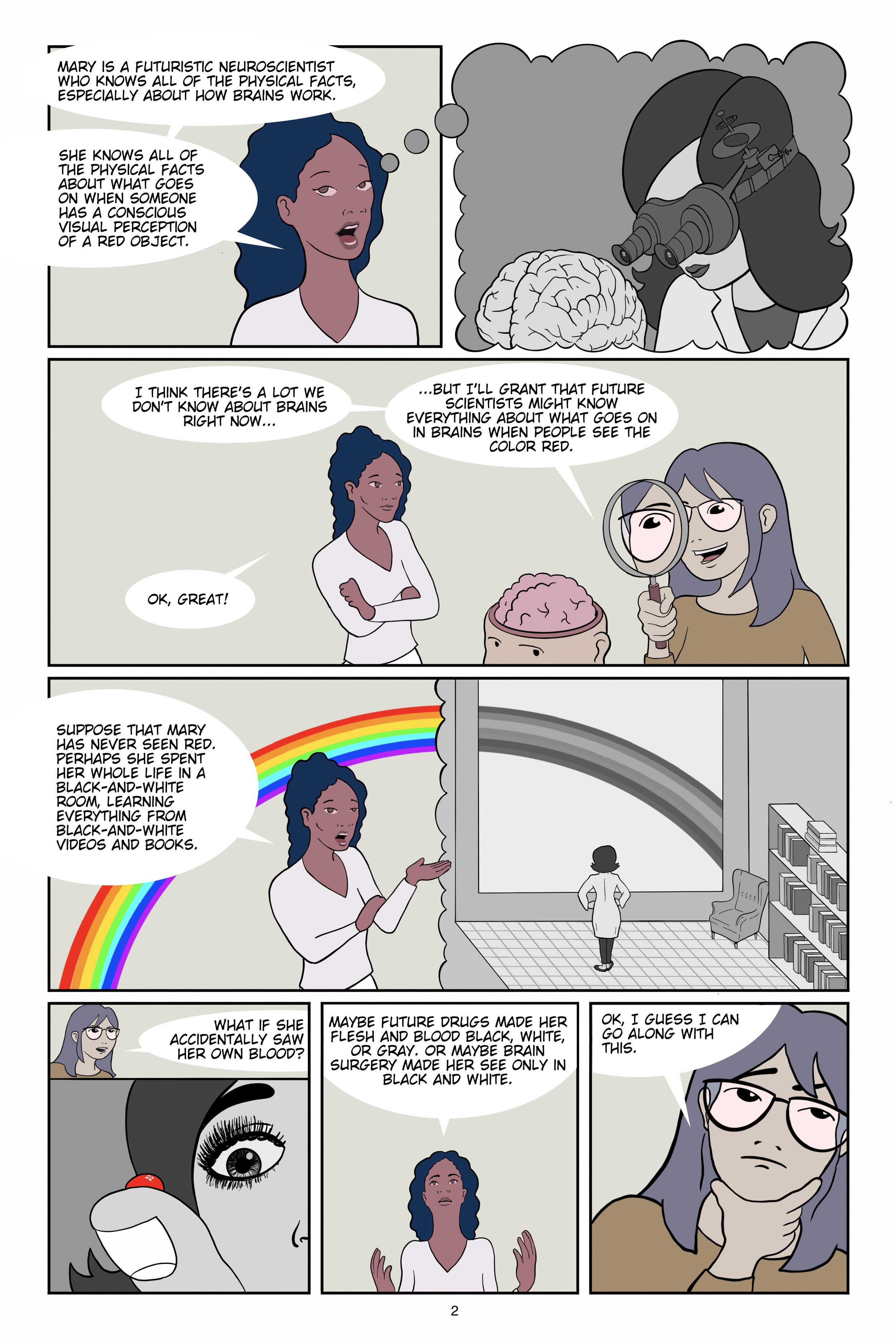These pages are part of a proposal for a project currently in limbo and on the back burner. Philosophy of mind aficionados will recognize the famous Mary from Frank Jackson’s knowledge argument in his 1982 paper “Epiphenomenal Qualia.”
(See also: Nida-Rümelin, Martine and Donnchadh O Conaill, (2021) "Qualia: The Knowledge Argument," The Stanford Encyclopedia of Philosophy.)
In case anyone cares about my own view of the knowledge argument, it’s this:
Everything’s physical, and knowing what it’s like to see red is a kind of propositional knowledge of a physical fact. Further, it’s knowledge that Mary can have in advance of seeing red in exactly the same manner (and for the same sort of reasons) that someone can know what Hume’s “missing shade of blue” is like in advance of finding it. People who find this counterintuitive are in the grip of (1) a dopey theory of knowledge whereby the paragon of knowing something is having the known thing “in” one’s own mind and (2) a dopey theory of ideas wherein some of them are atomic (that is, not constituted by their relations to other ideas).










